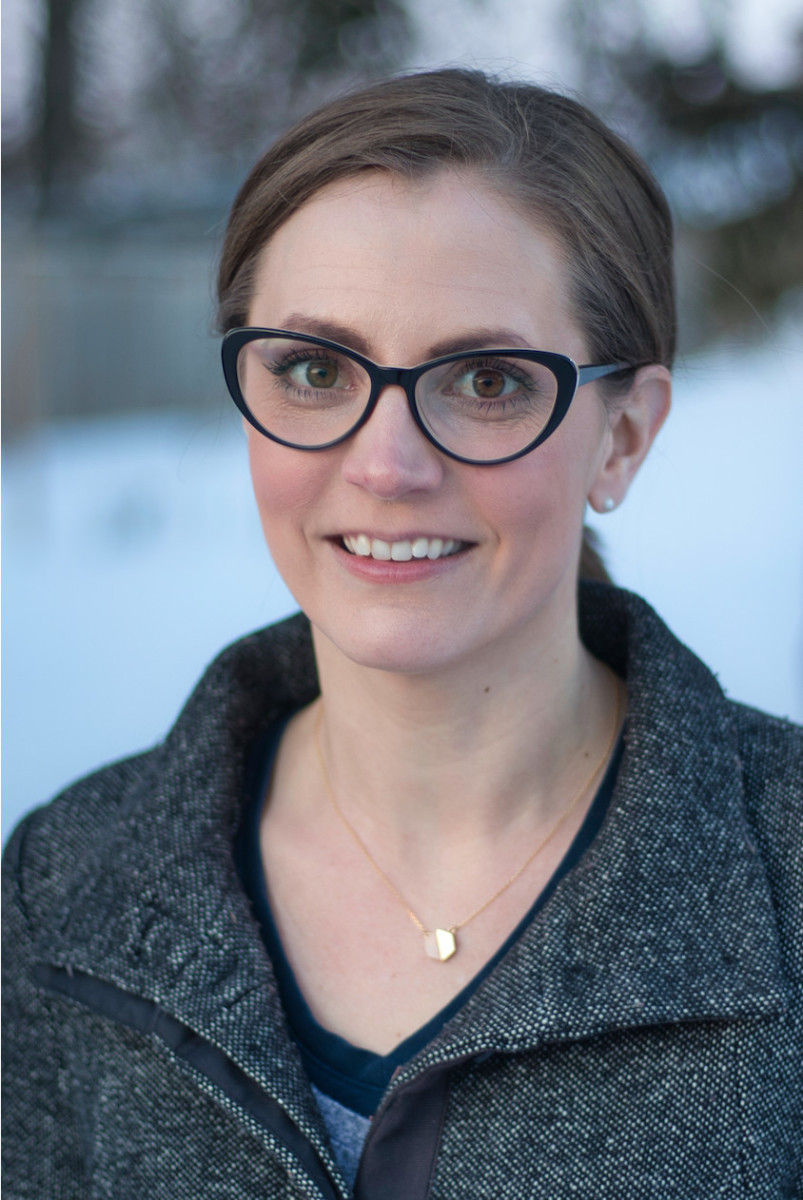Over the last month, my photo memories have been punctuated with pictures of past graduations. There’s the white gown from Holland Christian High School then the black gown from Kuyper College where my newlywed husband and I graduated.
There I am with my husband again, both of us still dressed in black gowns, this time each of us holding a little kid on a hip the day we graduated from Calvin Seminary.
Four years later there’s the picture where the kid on a hip at the last graduation is draping a red hood over the most expensive hat I own when I graduated from Emmanuel College during the pandemic. We watched the pre-recorded commencement address from our living room where I sat in my full regalia. Talk about anti-climactic.
I can’t shake the feeling that if those graduates could see me now, they’d be a little confused.
Every graduation is preceded by folks asking, “What’s next?” “What are your plans?” With the persistence of these questions comes the pressure – both internal and external – to learn to tell a certain story about ourselves. This is probably true for people entering any profession, but it is especially pronounced for those entering ministry. We learn to tell the story of how God has been molding us and shaping us with unique experiences and gifts and passions in order to do something particular and very useful in the world. We learn to tell a story about our calling.
If you asked me at high school graduation, I would have said that I felt called to use my musical gifts, so I was going to study music in college. I must have heard that call wrong because I was miserable studying music. Maybe God was calling me to serve the church instead. If you asked me at college graduation, that’s what I would have said, though the exact contours of that call to serve the church were still fuzzy.
Once my husband and I got to seminary, the question of calling came to dominate many conversations. Our peer mentoring groups took turns telling our stories about how God had called us to ministry. I learned to tell a certain story where I had discerned that God’s call on my life was becoming more and more clear. I was called to full-time pastoral ministry in the Christian Reformed Church. I left out the parts of the story that didn’t fit the narrative. I was too far into the narrative arc of the plot to turn back or complicate things too much.

Richard Lischer comments on the limits of plot when he says that plot is “a broom which sweeps everything in the same direction” and that direction is resolution. For seminary students, there is pressure to learn to tell your call story as a broom which sweeps everything in the same direction – and that direction is toward a call to self-sacrificial, long-term service of the Church. Oh, and if you want Classis financial aid from your CRC Classis then the broom better sweep everything toward service in the Christian Reformed Church.
After the graduation gowns have been returned, the seminary grads must go live and figure out if the story they’ve been telling about their “call to ministry” is right. Maybe the new grad gets a call to a church quickly, maybe they never get a call. Was their call story wrong? Maybe that first church is a great fit, or maybe it tests the credibility of their call story to its limits. And if the church doesn’t cause the new pastor to question that call, the denomination — or a hundred other variables — might. Did they misunderstand God’s call?
At each graduation, I learned to tell a slightly different story about God’s call on my life, but I am not living any of those stories – at least, not exactly. I am a part-time pastor whose attention to and service of her congregation is always in competition with a dozen other things. My ministry fails to measure up to whatever picture of the ideal full-time pastoral ministry I had internalized.
I am also a very part-time adjunct professor, which makes me feel like a perpetual imposter in the world of academia. Most recently I am a small business owner who knows next to nothing about running a small business. I just like to bake pastries and cakes.

I have a hard time focusing on any of these three things. My mind and affection are always bouncing around between them, but I can’t quite imagine quitting any of them. They all are part of who I am now.
Did I get my call story wrong for all those years? Or was my ministry call story right and I just got distracted? Maybe this all strikes you as some intense navel-gazing, but the number of pastors who have left ministry or are reconsidering their ministry leads me to believe that I am not the only one asking questions about what we were doing when we were learning to tell our call stories.
I don’t think I got my call story wrong. It’s just been too narrow. I want to learn to tell a bigger story. A wise friend is helping me to do that. She suggested that maybe all along God has been calling me to creativity, or to joy, or to love. That’s a big story I can grow into. It’s possible I’ll grow into that story as a pastor/professor/baker, but I don’t have to worry if the plot has a few more unexpected turns here and there. Nothing is wasted. God is holding it all together and calling me — calling all of us — toward God’s own self.

